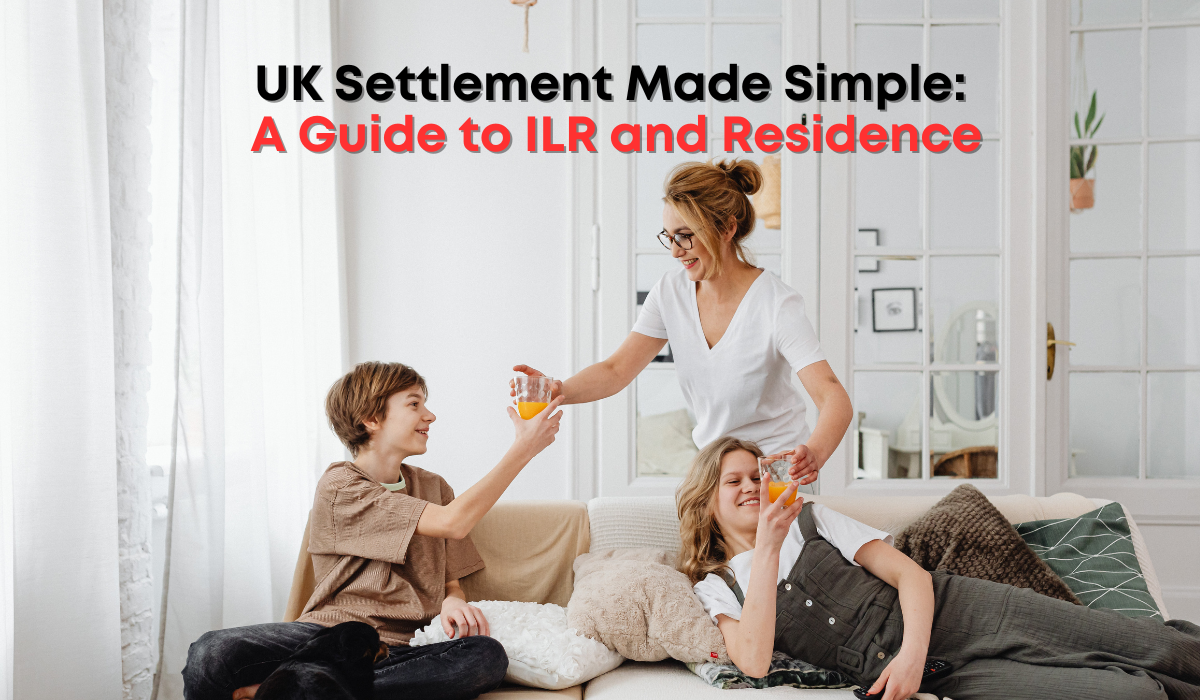For many, obtaining a UK visa is not just about gaining temporary permission to live and work in the country; it’s about the journey towards a more permanent status. Indefinite Leave to Remain (ILR) represents that critical milestone, granting freedom from immigration controls and paving the way for British citizenship. But achieving settlement isn’t automatic; it requires careful navigation through complex immigration rules.
As Immigration Solicitors, we understand that selecting the right visa isn’t just about meeting today’s requirements but also aligning with your long-term aspirations, particularly if settlement is your ultimate goal.
Why Your Visa Choice Matters for Settlement
Not all visas lead to settlement. If settlement in the UK is your priority, the type of visa you select can significantly impact your timeline and eligibility. For example, some visa routes may prolong your journey to ILR, keeping you subject to immigration controls, visa conditions, and additional fees such as the Immigration Health Surcharge for longer periods. Therefore, understanding your settlement objectives from the outset can influence the immigration advice you receive and ensure your path is as efficient and cost-effective as possible.
Understanding Indefinite Leave to Remain and Continuous Residence
Every ILR application hinges on meeting the continuous residence requirement. This involves a minimum period of lawful, uninterrupted residence in the UK, which varies depending on the visa type. For instance, Skilled Worker Visa holders typically require five years of continuous residence, but this must be calculated with reference to permitted absences.
What Is Continuous Residence?
Continuous residence refers to the qualifying period of time spent lawfully in the UK without significant absences. For most applicants, this means you cannot be outside the UK for more than 180 days in any rolling 12-month period. However, there are exceptions to this rule, and understanding these nuances is essential to avoid breaking your continuous residence period.
If you entered the UK on one visa type and later switched to another, be aware that not all time spent in the UK may count towards your ILR application. Different visa routes have distinct rules for calculating continuous residence and permitted absences. Consulting with an experienced Immigration Solicitor can help you navigate these complexities.
Permitted Absences: When Exceptions Apply
The Home Office provides specific guidelines on permitted absences in Appendix Continuous Residence. While most ILR applicants must adhere to the 180-day rule, certain exceptions allow for longer absences without breaking your continuous residence. These include:
- Travel disruptions due to natural disasters, military conflicts, or pandemics.
- Humanitarian or environmental crisis work, provided your sponsor has approved your absence if you are on a sponsored route.
- Compelling and compassionate personal circumstances, such as a life-threatening illness of the applicant or a close family member.
- Research activities approved by a sponsor for Skilled Worker Visa holders in specific occupational codes, including roles in scientific and academic fields.
Each exception requires robust evidence to support your claim. For instance, compassionate grounds may necessitate medical letters, death certificates, or proof of relationship and caregiving responsibilities. Similarly, research-related absences must be backed by sponsor approval and verification of your job’s inclusion in qualifying occupational codes.
Navigating Settlement Challenges
Failure to meet the continuous residence requirement can have significant repercussions. If your absences exceed permitted limits without falling under an exception, your ILR application could be refused. In such cases, you have options:
- Administrative Review: If you believe the Home Office erred in assessing your application, you can request a review. However, new evidence is rarely accepted at this stage, making it vital to present a comprehensive application initially.
- Fresh Application: Depending on the circumstances, securing a further visa and reapplying for ILR may be your best option. This approach allows you to reset your continuous residence clock and build a stronger case.
Legal advice is indispensable when dealing with complex settlement issues. An experienced Immigration Solicitor can guide you on the best course of action, whether it’s challenging a refusal or preparing for a fresh application.
Plan Your Route to Settlement
The journey to settlement begins long before your ILR application. By understanding the rules around continuous residence and permitted absences from the outset, you can avoid unnecessary delays and complications. Regularly reviewing your visa status and absences—and seeking expert advice when needed—is key to staying on track.
At GigaLegal Solicitors, we are committed to helping clients achieve their settlement goals. Our team of ILR Lawyers provides tailored advice to ensure your visa choice aligns with your long-term aspirations. Whether you’re planning your first visa application or preparing for ILR, we’re here to guide you every step of the way.
If you’re considering settlement in the UK or need help understanding the eligibility criteria for Indefinite Leave to Remain, contact us today for expert advice. Together, we can make your settlement journey a success.
Get in touch: For a comprehensive understanding of your options or queries on UK immigration matters, contact GigaLegal Solicitors at 02074067654 or click here to book a no-obligation consultation with an immigration expert.


